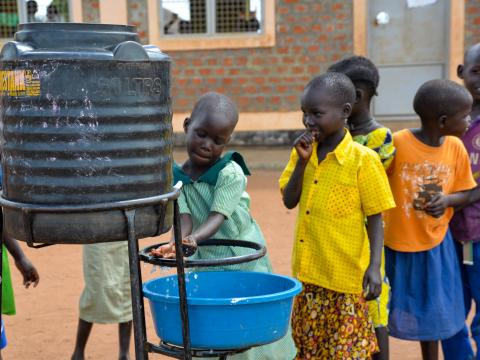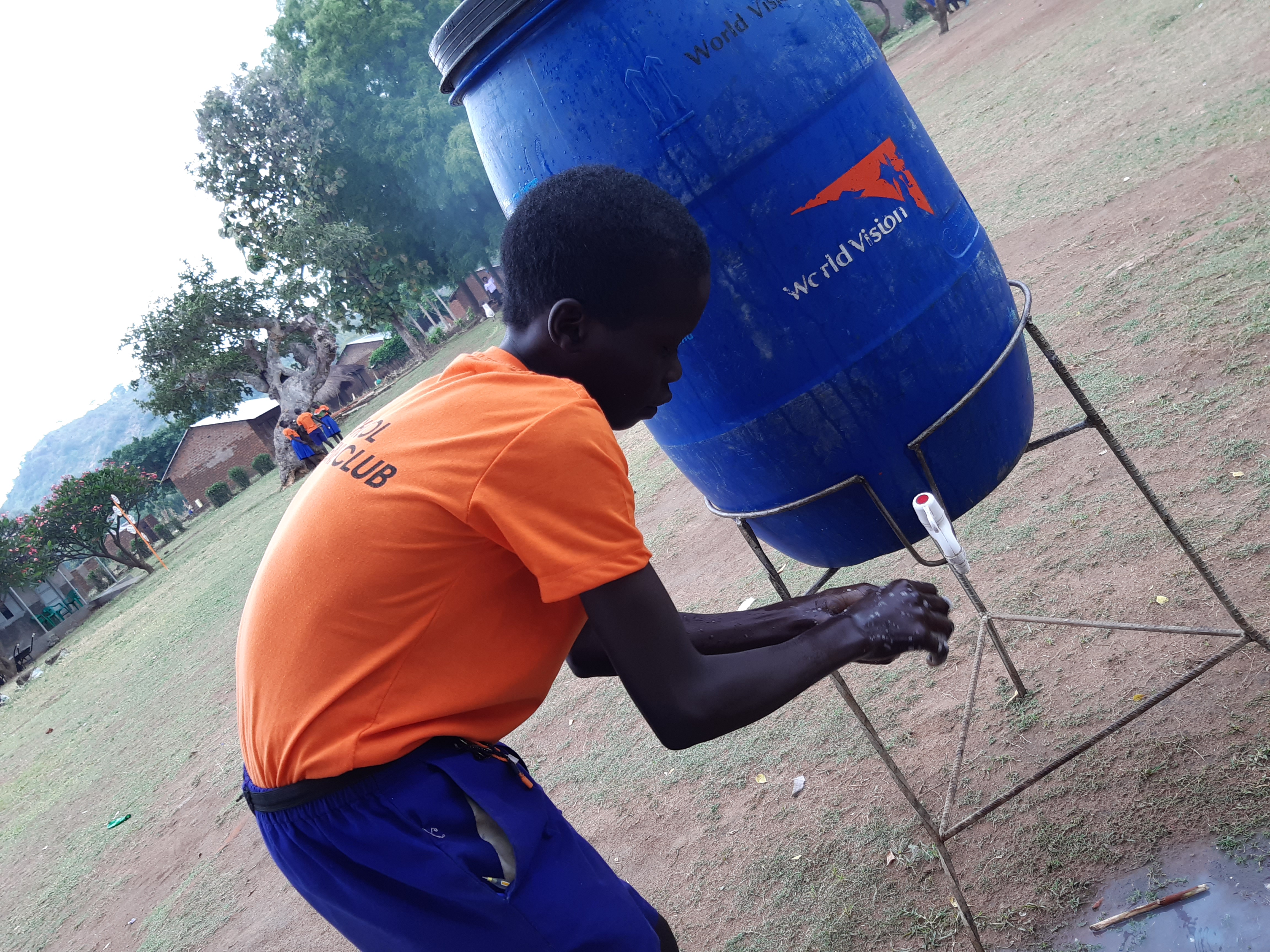COVID-19: Children in West Nile will be the ambassadors of prevention

By Derrick Kyatuka, Communications Officer, West Nile Refugee Response
The world is shaken with the outbreak of the Novel Coronavirus (COVID-19), which was first reported in the Wuhan province in China. The Coronavirus pandemic has since rapidly spread to 192 countries and territories worldwide (by March 23). Outside of China, Italy has been the worst-hit country, with almost 60,000 infections.
Africa is beginning to see new infections every day, and East Africa is not exempt. Uganda confirmed the first case of COVID-19 on March 21. The question on everyone’s mind is: should it spread, how prepared are we?
One of the key messages being shared from every corner is good hygiene and sanitation as being key in helping prevention and stopping further spread of the Coronavirus.
In West Nile, where the refugee settlements have limited access to advanced health care systems, prevention of the deadly COVID-19 is paramount to keep the children and the communities they live in safe.
World Vision in Uganda is implementing an Inclusive Wash project in the Omugo Refugee Settlement. Handwashing and personal hygiene practices are being emphasised through hygiene clubs both in the host and refugee primary schools.

Monica, a teacher at Obi Primary School, says the school administration informed children about COVID-19 and encouraged them to continuously wash their hands with soap and clean water.
“We cannot afford expensive hand sanitisers and other disinfectants because of our large numbers of pupils, but we are grateful to World Vision that provided us with enough hand washing facilities at the school. This will help us to prevent spreading the virus,” she says.
Daniel, a pupil and member of a hygiene club at the same school explains that knowing how the virus spreads has helped him know how it can be avoided.
“World Vision staff came and talked to us about the virus and the preventive measures we need to take to avoid contacting it. I felt very enlightened, and I am now very careful about my personal hygiene,” he notes.
Sharon, a refugee from South Sudan, says that she now knows what to do in case the virus is announced in the settlement.
“As a member of the hygiene club, I will share the preventive message against the virus with my family and members in the community like signs and symptoms and how to treat an infected person. If we all know what to do it will help us to stop the virus from affecting many people."
According to World Vision, WASH project manager in the response, Dithan Mukiibi, is confident that the children are empowered to fight against the virus even at home and in their communities.
“Appropriate personal hygiene, clean water and sanitation are fundamental for a healthy life and in fighting against deadly illnesses including COVID-19, and this is the information we have been sharing with the children. The members of the different hygiene clubs will be our ambassadors in reaching other children in the community who don’t attend our beneficiary schools. We hope they share the same information with their families and community,” Dithan says.
“We have empowered children with all the necessary information about the virus and in case we are affected, it will be contained before it spreads to the wider community,”